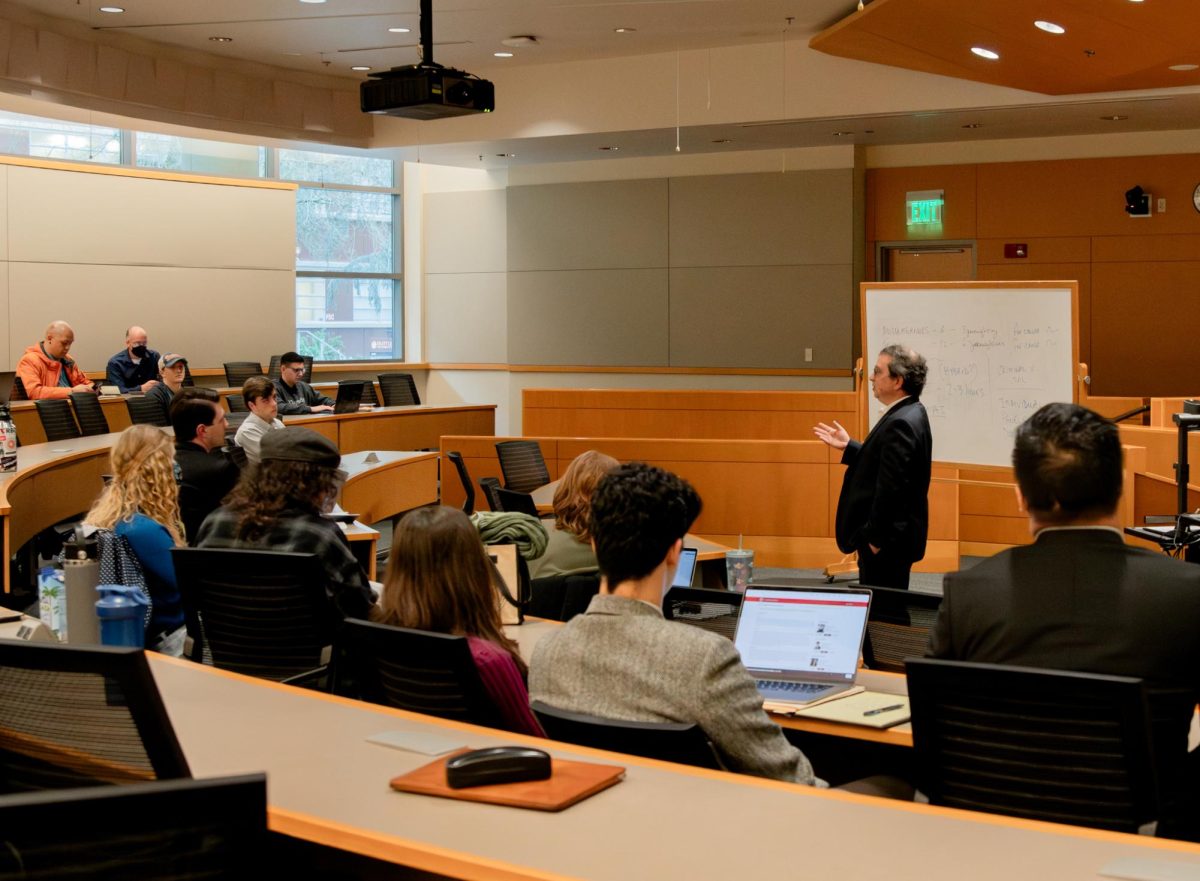With a rapidly advancing election season, a common perception among many Americans could be that the candidates slated for the 2024 ballots are set in stone. However, there is a growing effort to remove former president Donald Trump from some states’ Republican primary ballots. This presents a potential challenge to his heavily anticipated return to the White House.
Feb. 8, the Supreme Court will hear arguments for and against Trump’s ballot disqualification in Colorado. This comes after the Colorado Supreme Court ruled 4-3 in favor of disqualification. Trump and his lawyers are hoping to reverse this ruling.
The ruling on disqualification is a result of Section 3 of the 14th Amendment of the United States Constitution. This section states that people who, “have engaged in insurrection or rebellion,” may not hold public office. Those attempting to remove Trump from the ballot believe that comments made by the former president on Jan. 6, 2021, constitute engaging in insurrection.
Specifically, Trump urged his supporters to “confront this egregious assault on our democracy”; “walk down to the Capitol…[and] show strength;” and that if they did not “fight like hell, [they would] not…have a country anymore.”
Andrew Siegel is a professor of law at Seattle University who specializes in constitutional law and the Supreme Court. Siegel weighed in on the significance of the legal precedence of the case.
“It’s one of the biggest, most open-ended cases to reach the Supreme Court in our lifetime,” Siegel said. “It really will determine so much about how this election transpires.”
Siegel hosted a conversation Jan. 31 titled “Discussion on Disqualification – The Trump Question.” Organized by the Seattle U chapter of the American Constitutional Society (ACS), this event brought together students to explore the many facets of the upcoming decision facing the nation’s highest court.
Rebecca Hannan, a second-year law student and vice president of the ACS chapter at Seattle U, says the organization put together the event to explore legal and political questions raised by the case.
“I think, often, we get the headline of what a given decision is, but understanding the reasoning behind it can be really helpful,” Hannan said.
The ramifications of any decision are particularly complex due to the political context. The Supreme Court’s six conservative justices are making their decision with the clock ticking toward Super Tuesday March 5. Super Tuesday will see 15 states vote in Republican primaries, including the state of Maine. The Maine Supreme Judicial Court is waiting for the Supreme Court’s result to make its own decision on disqualification.
“It would be hard to imagine the court ruling that Trump is disqualified from the ballot based on the current makeup of the court, and also the consequences that that would have,” Hannan said.
Even with the court’s conservative majority, it is unclear what path the court could take to reach Hannan’s predicted outcome. The open-ended nature of the language in this section of the 14th Amendment is yet another complicating factor.
“Section 3 of the 14th Amendment–this particular provision is terrible Constitution writing. It is an invitation to contested litigation with incredibly high stakes at, by definition, the times in our history where we are most fragile,” Siegel said.
The United States adopted the 14th Amendment after the Civil War. Section 3 was adopted in large part as a means to bar Confederates from public office. Siegel expects the Supreme Court’s ruling to hinge on their modern definition of inciting an insurrection.
“[It is possible] that the court determines that President Trump’s conduct was largely limited to his speech and doesn’t meet the constitutional definition of incitement…and therefore this can’t be used against him,” Siegel said.
The court’s decision is significant not only as it affects the 2024 election, but future elections as well. Gabi Muña, a third-year political science and sociology major, has a more optimistic perspective. Muña is vice president of the Political Science Club and participated in a club discussion about the upcoming case.
“I think it would set some real precedent for holding politicians accountable for their actions in and out of office if it were to be ruled against Trump,” Muña said.
If the Supreme Court decides to side with the Colorado Supreme Court, it does not mean Trump cannot win the presidency. States would have to decide on their own whether to disqualify Trump from their ballots.
The Supreme Court’s decision, regardless of the outcome, will have lasting effects on the American political climate. Oral arguments for the Supreme Court case will begin Feb. 8.








Sophia Hampton
Feb 13, 2024 at 9:03 am
Great report on the issue!